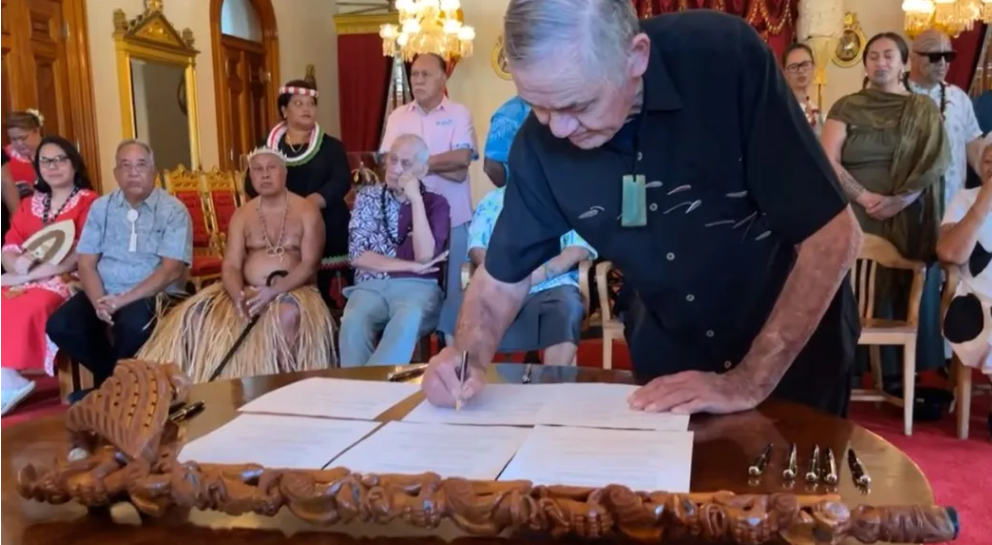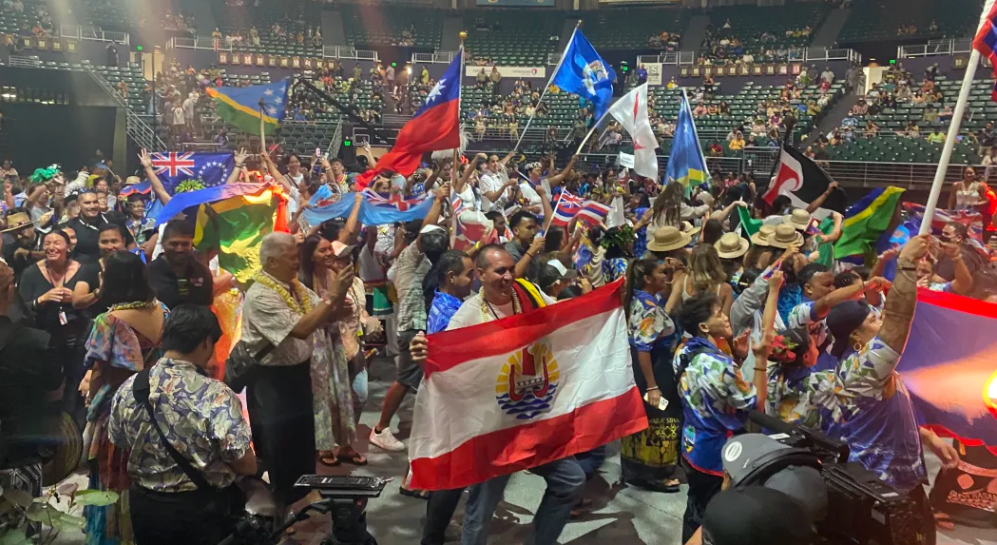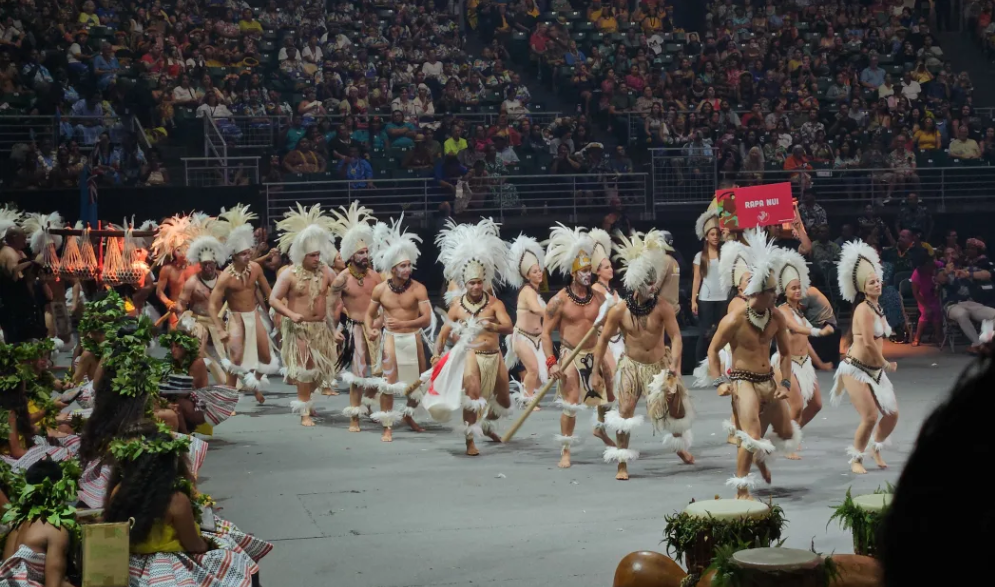Uniting for Heritage, Unity, and the Future
The world’s largest event celebrating Pacific culture, the Festival of Pacific Arts and Culture (FestPAC), has united thousands of delegates, leaders, performers, and spectators in a powerful demonstration of solidarity and cultural preservation. This year’s FestPAC, hosted in Hawai’i, has been marked by significant moments that have highlighted the resilience, unity, and cultural richness of Pacific peoples.
Revitalising Cultures and Fighting Extinction
Anthony Borja, a community elder from Guam, emphasized that FestPAC is about much more than “revitalising cultures.” He described the festival as “a fight against the extinction of Pacific people,” highlighting the emotional and cultural stakes involved. Borja praised the support from Fiji for the people of New Caledonia, showcasing the festival’s role in fostering a sense of a larger Pacific family.
Over 2,000 delegates from across the Pacific traveled to Hawai’i for the 10-day festival. The Rapa Nui delegation made history by bringing their largest group ever, with over 100 indigenous people showcasing traditional art forms. Hotu Iti Ariki, a performer, noted that their diverse team, ranging in age from 9 to 70, represents a walking showcase of intergenerational knowledge, emphasizing the importance of passing down cultural traditions.
Historic Meeting of Traditional Leaders
A historic meeting of traditional leaders was a poignant moment at the 50th anniversary of FestPAC. Leaders from across the Pacific signed the Tuurama Ariki Declaration, pledging to use indigenous traditional knowledge to lead their communities forward. This declaration is named for “Tuurama,” a term that evokes ancestral wisdom guiding future journeys.
Dr. Aaron Sala, FestPAC director, described the event as historic for the region. He explained that the goal was to facilitate dynamic and challenging conversations around issues like economic development, health, and social welfare from a traditional perspective. The declaration aims to bolster regional unity and cooperation, addressing shared challenges like climate change and sustainable development. Ngira Simmonds, chief of staff for the Kiingitanga, emphasized that the declaration formalizes relationships between traditional leaders and celebrates their unique long-term focus on regional issues.

A Call for Unity and Responsibility
During the closing ceremony at the University of Hawai’i at Manoa, FestPAC director Dr. Aaron Sala stressed the importance of unity and ongoing responsibility. He called on Pacific nations and their ancestors to stay united and maintain their cultural connections. The ceremony, attended by delegations from 25 nations, featured a standing ovation for West Papua, New Caledonia, and Vanuatu, recognizing their contributions and struggles.
Dr. Sala highlighted the festival’s legacy and its role in inspiring future generations to address pressing issues like climate change. He shared a hopeful vision where young Pacific Islanders, inspired by their heritage, pursue advanced education and work to protect their environments.
Emile Kairua from the Cook Islands, the next festival director, invited everyone to prepare for the 14th FestPAC in New Caledonia in 2028, promising it to be the biggest and best “family reunion.”

FestPac adjourned
As FestPAC concludes this year, the spirit of unity and cultural pride remains strong, promising a vibrant future for Pacific heritage and cooperation. The next festival, eagerly anticipated, will be held in New Caledonia in 2028, where the Pacific family will once again come together to celebrate their shared culture and history.





